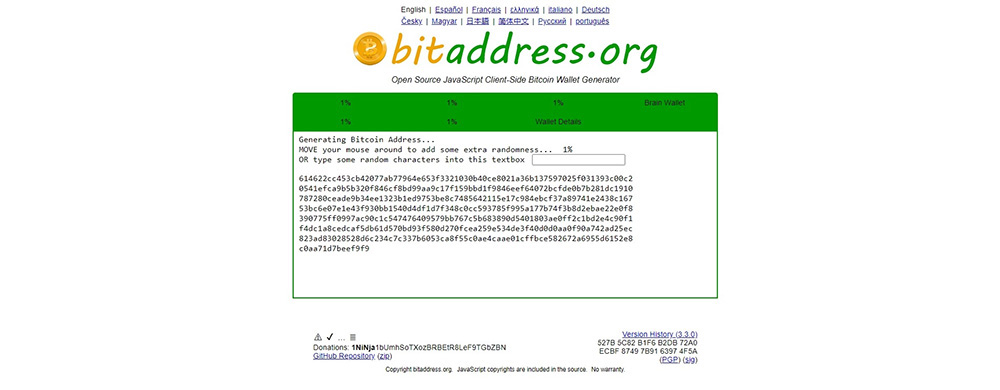In the world of cryptocurrencies, ensuring the safe storage and management of digital assets is paramount. One of the popular methods for storing Bitcoin is through paper wallets, which are generated by various online services. BitAddress.org is a widely-used website that offers this service. The aim of this article is to provide an in-depth understanding of what BitAddress.org is and to assess its level of security for users.
Understanding BitAddress.org
BitAddress.org is an open-source project designed to create Bitcoin paper wallets quickly and easily. Paper wallets are essentially physical copies of your private and public keys on a piece of paper or other offline storage medium. This method of storing Bitcoin has gained popularity among cryptocurrency enthusiasts as it provides an added layer of security by being immune to hacks or malware, which can potentially compromise digital wallets stored on devices connected to the internet.
Generating Wallets with BitAddress.org
The process of using BitAddress.org to generate a paper wallet starts by visiting their website. Upon arrival, users are prompted to move their mouse cursor randomly across the screen or enter random text into a textbox. This is done to ensure the generation of truly random private keys. After generating adequate entropy, the website generates a public and private key pair along with a QR code for both. Users can then print out these details and use them to store, send, or receive Bitcoin without needing a traditional digital wallet.
Evaluating the Security of BitAddress.org
As with any online service dealing with sensitive information, concerns have been raised about the safety and reliability of BitAddress.org. Various aspects of its operation can be considered when determining how secure the platform is for generating paper wallets.
Is the Code Safe?
BitAddress.org is an open-source project, with its code available on GitHub for review and scrutiny by anyone. This means that any security flaws or vulnerabilities in the platform can be identified and rectified quickly by developers from around the world. Additionally, the transparency of its code allows users to verify that their private keys are generated securely without any hidden backdoors that could potentially compromise their Bitcoin holdings.
Are the Generated Wallets Secure?
The effectiveness of BitAddress.org’s wallet generation process fundamentally depends on the randomness of the private keys it creates. The greater the degree of entropy, the more difficult it becomes for attackers to guess or brute-force the private key associated with a given public address. BitAddress.org ensures sufficient randomness by prompting users to provide additional random inputs during the wallet generation process. Furthermore, they implement algorithms like Elliptic Curve Digital Signature Algorithm (ECDSA) to ensure the security of generated private keys.
Is the Website Itself Safe?
Given that BitAddress.org operates as an online service, it faces various threats common to web-based platforms. These include phishing attacks where malicious actors create seemingly legitimate websites to trick users into revealing sensitive information. To mitigate these risks, users can download the source code from GitHub and run it on their local machine or use browser extensions such as HTTPS Everywhere to force secure connections when using BitAddress.org. Moreover, a simple precautionary measure is to verify the website’s URL before engaging with the service to ensure its authenticity.
Additional Security Recommendations
While BitAddress.org takes measures to ensure the security of its services, users can take additional steps to enhance the safety of their paper wallets. Some of these recommendations include:
- Generating wallets offline: To avoid potential online threats, users can download the BitAddress.org source code and use it on a device that is disconnected from the internet.
- Using secure printers: Ensuring that the printer used to print paper wallets does not store any data or cache information can prevent unauthorized access to wallet details.
- Storing wallets securely: Paper wallets should be kept in safe storage locations such as fireproof safes, vaults, or safety deposit boxes to protect against physical damage or theft.
- Creating multiple copies: Having more than one copy of a paper wallet can provide redundancy in case the original is lost or damaged.
In conclusion, BitAddress.org offers a valuable service for generating Bitcoin paper wallets with various layers of security in place. However, users need to take responsibility for ensuring their wallets’ safety by adhering to best practices and implementing additional security measures where necessary.

